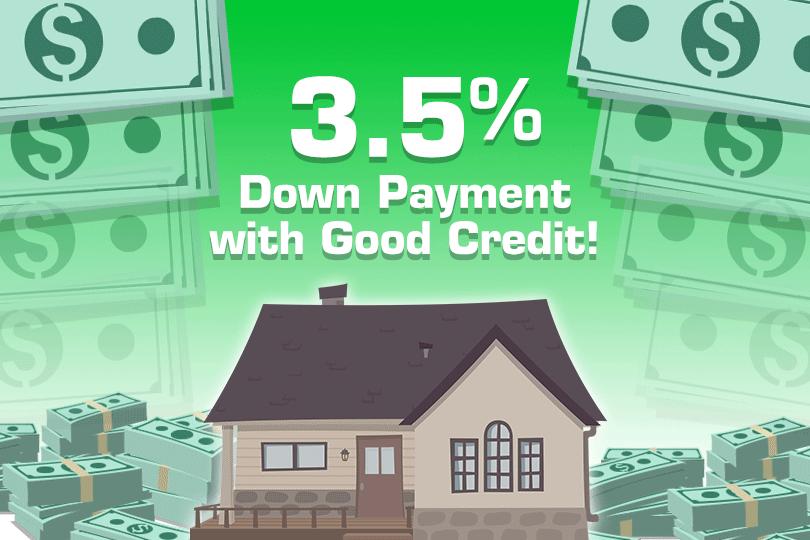What to Know About Down Payments
December 23, 2022
While down payments are one of the biggest obstacles for many in the mortgage process, it helps to understand the ins and outs of why they play such a big role.
Why Do Down Payments Matter?
Down payments go a long way in giving a lender peace of mind when loaning you a sizeable chunk of money for a home purchase. By putting money down on a home, you are assuring a lender that you intend to follow through on the loan to the best of your ability.
Additionally, the amount of money you are able to put down does not affect the interest rate you get from a lender, but it does play a part in how much you pay in interest over the life of the loan. That essentially means that the less you borrow, the less interest you’re paying on it. If your home costs $300,000, and you pay $40,000 down, you would be paying interest on $260,000. Whereas if you put only $20,000 down, you would be paying the same interest rate on a larger amount, making it amount to larger interest payments in total.
Down Payment Requirements
When shopping for a mortgage, the down payment requirements play a big role in your decision, so it helps to know what the conditions are for the different types of home loans.
For most conventional loans, borrowers must pay 20% of the purchase price. Since many first-time homebuyers find it difficult to afford such a large, upfront payment, conventional lenders tack on a monthly Private Mortgage Premium until the buyer is able to pay off 20% of the purchase price.
Since FHA loans are backed by the government, they have a lower down payment requirement of 3.5% of the purchase price. It is important to keep in mind that though the FHA has set this low limit, FHA-approved lenders can place “overlays” and place more stipulations.
Down Payment Assistance
While all this may seem daunting, keep in mind that there is a way to make saving easier. As a borrower, you should know that down payment assistance is available in three forms:
Down Payment Grants: State and municipal agencies and housing authorities have many programs for first-time and repeat homebuyers that can be put towards paying mortgage expenses like down payments and closing costs, without any repayment stipulations.
Second Mortgages: Some assistance programs are offered as a second mortgage with low- or zero-interest rates that need to be paid when the home is paid off, sold, or refinanced. Some loans are completely forgiven after a certain period of time.
MCC: A Mortgage Credit Certificate (MCC) is a tax credit issued by state or local government that allows a taxpayer to claim some portion of the mortgage interest paid. While this is not a tax deduction, it does provide a dollar-for-dollar tax credit to homebuyers for the interest paid during a given tax year.
Keep in mind that all these assistance programs come with their own eligibility criteria, and may be awarded to applicants based on income level, credit scores, occupation, etc.
------------------------------
RELATED VIDEOS:
You're Almost There When You Get Your Loan Approval
Learn About the Mortgage Insurance Premium (MIP)
Pre-approval Starts the Mortgage Process

FHA Loan Articles
November 21, 2024The dream of homeownership is with some from a young age. But in an uncertain housing market, some grapple with the question: Is buying a home the right move for me?
While renting offers relocation flexibility and lower upfront costs, homeownership provides a wealth of financial and personal benefits.
November 20, 2024Refinancing your mortgage offers a way to cash in on your home equity, potentially reduce your interest rate, or modify your loan term. Borrowers ready to consider have options including FHA loans and conventional loans.
While both provide avenues for refinancing, each loan type may be best for specific needs and financial circumstances. What are the differences between FHA and conventional refinance options?
November 14, 2024The home you want to buy might seem perfect, or it may have a few flaws that are acceptable in the grand scheme of things. But what about issues you can’t spot just by walking through the property a few times? A home inspection provides an unbiased, expert assessment of the property's condition, uncovering potential issues that might not be noticeable to the untrained observer.
November 12, 2024Escrow is an important feature of most typical FHA loans. An escrow account is a third-party account where borrowers deposit funds designated for property taxes and other uses. Requirements to use escrow accounts typically stems from a need to protect all parties involved in the transaction
November 2, 2024When it’s time to consider buying a home, the Federal Housing Administration (FHA) offers two popular options. One is the traditional FHA purchase loan many use to buy a house in the suburbs. But not everyone wants to buy an existing property. Some want more control over the design and configuration of the home.
The other FHA construction loan option, the one-time close mortgage, comes in here. This option is for those who want to approve floor plans, have a say in the types of materials used to build the home and choose its features.







